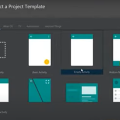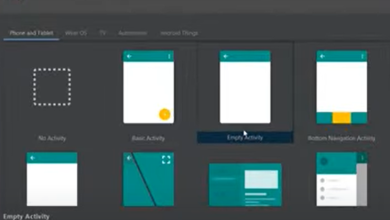How to Become a Freelancer: A Step-by-Step Guide

What is freelancer?
A freelancer is a self-employed person who works for multiple clients on a contract or project basis. Freelancers can work in a wide variety of fields, including writing, editing, design, programming, marketing, and consulting.
Freelancing has become increasingly popular in recent years, as people are looking for more flexible and work-life balance. Freelancers have the freedom to choose their own clients and projects, and to set their own hours.
There are many benefits to freelancing, including:
- Flexibility: Freelancers can choose their own hours and work from anywhere in the world.
- Variety: Freelancers can work on a variety of different projects and with a variety of different clients.
- Control: Freelancers have control over their own work and their own careers.
- Earning potential: Freelancers can earn a good living, especially if they have in-demand skills and a strong portfolio.
However, there are also some challenges to freelancing, including:
- Lack of stability: Freelancers don’t have a guaranteed income, and they may experience periods of unemployment between projects.
- Lack of benefits: Freelancers don’t typically receive benefits such as health insurance, paid time off, and retirement savings plans.
- Long hours: Freelancers often work long hours, especially when they’re first starting out.
- Isolation: Freelancers often work alone, which can be isolating.
Overall, freelancing can be a great career choice for people who are looking for flexibility, variety, and control over their work. However, it’s important to be aware of the challenges involved before making the decision to freelance.
What you need to do to become a skilled freelancer
So you’re thinking about becoming a freelancer, huh? It’s an exciting prospect to be your own boss and set your own schedule, but it does take some work up front to make freelancing a success. From spending years as a freelance writer and consultant myself, here are some of the most important things I’ve learned along the way to becoming a true professional in your freelance field.
The first thing is to really focus on honing your craft. Freelancing takes a ton of self-discipline, so make sure you’re getting plenty of practice and continuing to develop your skills in your area of expertise. Whether that’s design, coding, writing – whatever your freelance gig entails, put in quality time each week practicing, learning new techniques, and building your portfolio. Don’t expect clients to pour in right away without a strong foundation of experience behind your work.
A lot of new freelancers make the mistake of thinking they can just wing it once they start taking jobs. While spontaneity has its place, solid preparation and process will serve you much better in the long run. Spend time getting to know your industry, set clear expectations and workflows with clients, and prep templates or checklists to ensure quality and timely deliverables each time. The more polished and professional your operation appears, the more trust and referrals you’ll earn from happy customers.
Speaking of customers, networking is a must for drumming up freelance opportunities. Get active in relevant online communities and forums, attend local meetups in your field, volunteer for organizations related to your work – any chance to meet people and get your name out there as the go-to for your services. Make sure to have plenty of business cards on hand as well, both physical and virtual ones you can easily share. You never know where new leads might come from, so put in the effort to connect wherever professionals in your industry gather.
Don’t forget to build your online presence too. At minimum, have a polished website or portfolio that clearly markets your qualifications and previous work. Consider starting a blog in your area of expertise to become an authority and attract potential clients looking for someone knowledgeable. And make sure all your profiles on job boards and social media emphasize your freelance services – you want to come up at the top of search results. Consistency and persistence pays off with digital marketing for freelancers.
It’s also crucial to have systems in place for attracting repeat business and referrals. Send thank you notes after every project, collect testimonials, and maintain a list of past clients that you reach out to on special occasions or when you’ve launched a new service. Treating your freelance work like running a real business means keeping excellent client relationships and a strong brand top of mind past the initial contract. Loyal customers will keep your skills and services in high demand.
And then comes the not-so-fun part – learning how to manage your finances. As a freelancer, you’ll need to set aside portions of every paycheck for taxes, savings, retirement, healthcare if you’re in the US. Find an accountant you trust to help ensure you stay on the right side of tax laws too. If possible, set up separate personal and business banking to keep your funds organized. And always have an emergency fund for inevitable slow months – freelance success is a marathon, not a sprint!
No matter what your freelance craft may be, developing your business skills and identity has proven crucial as well. Mastery of your art or trade and hustle to find work will only get you so far. Highlighting your professional communication, timeline adherence, unique value proposition and a relatable personal brand are all ways to stand out from other solo practitioners and feel secure long-term. Freelancing takes work but it’s absolutely worth it when you start seeing how much you’ve grown your business and expertise from those early days.
How to become a skilled freelancer
Freelancing is a great way to be your own boss and set your own hours. It’s also a great way to earn a good living, especially if you have skills that are in high demand.
But how do you become a skilled freelancer? Here are a few tips:
- Choose a niche. What are you good at? What do you enjoy doing? Once you know your niche, you can start to market yourself to potential clients.
- Build a portfolio. This is your chance to show off your skills and experience to potential clients. Your portfolio should include your best work, as well as any testimonials from previous clients.
- Network with other freelancers. This is a great way to learn from others and find new clients. There are many online and offline communities where you can connect with other freelancers.
- Set competitive rates. Don’t undervalue yourself. Research what other freelancers in your niche are charging and set your rates accordingly.
- Be reliable and professional. This is essential for any freelancer. Make sure you meet deadlines and deliver high-quality work.
Here are some additional tips for becoming a skilled freelancer:
- Continue to learn. The world of work is constantly changing, so it’s important to stay up-to-date on the latest trends and technologies. Take online courses, read industry blogs, and attend conferences to learn new skills.
- Promote yourself. Let people know that you’re available for freelance work. Create a website or blog, and be active on social media. You can also reach out to potential clients directly.
- Provide excellent customer service. This is essential for building a successful freelance business. Be responsive to your clients’ needs and go the extra mile to make them happy.
Freelancing can be a challenging but rewarding career. If you’re willing to put in the work, you can achieve success as a freelancer.
Here are some additional tips that may help you become a skilled freelancer:
- Be organized and efficient. It’s important to be able to manage your time effectively and juggle multiple projects at once.
- Be able to work independently. Freelancers often work alone, so it’s important to be able to self-motivate and stay on task.
- Be able to communicate effectively. Freelancers need to be able to communicate effectively with clients, both in writing and verbally.
- Be able to handle criticism. Freelancers need to be able to take criticism constructively and use it to improve their work.
If you’re thinking about becoming a freelancer, I encourage you to go for it. It’s a great way to be your own boss and set your own hours. And with hard work and dedication, you can achieve great success as a freelancer.
The Essential Skills and Habits of Successful Freelancers
Successful freelancers have a variety of skills and habits that help them succeed. Here are some of the most important:
Skills:
- Technical skills: Freelancers need to have the technical skills required for their chosen field. For example, a freelance writer needs to have strong writing and editing skills, while a freelance web developer needs to have strong programming skills.
- Communication skills: Freelancers need to be able to communicate effectively with clients, both in writing and verbally. They need to be able to clearly explain their ideas and services, and they need to be able to understand and respond to client feedback.
- Project management skills: Freelancers often have to juggle multiple projects at once. They need to be able to manage their time effectively and meet deadlines.
Habits:
- Self-discipline: Freelancers need to be self-disciplined in order to stay on track and meet deadlines. They also need to be able to motivate themselves to work independently.
- Organization: Freelancers need to be organized in order to keep track of their projects, clients, and finances.
- Adaptability: Freelancers need to be able to adapt to change, as their clients and projects may change frequently.
- Continuous learning: Freelancers need to be continuously learning in order to stay up-to-date on the latest trends and technologies in their field.
In addition to the above skills and habits, successful freelancers also tend to be:
- Reliable: Freelancers need to be reliable in order to build trust with clients. This means meeting deadlines and delivering high-quality work.
- Professional: Freelancers need to be professional in their dealings with clients. This means being responsive, communicative, and respectful.
- Positive: Freelancers need to have a positive attitude and a willingness to go the extra mile. This will help them to attract and retain clients.
If you are serious about becoming a successful freelancer, it is important to develop the skills and habits listed above. With hard work and dedication, you can achieve your goals and build a successful freelance business.







